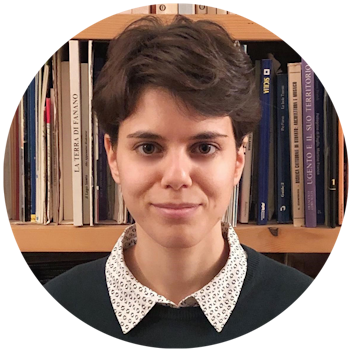
Lesbo Island: the EU’s and western legal tradition’s failure
 Nicolò Alessi
Nicolò Alessi
Notoriously there is no common definition of federalism, nor a global theory of federalism. As such, there can be no set typology for a federal scholar either. Federalism is multifaceted per se. It embodies pluralism, both in institutional terms, and in a broader, societal dimension. Federalism has evolved from a tool to regulate the interplay of different institutional actors –initially formerly sovereign states, more recently of devolved territories – to a matrix that not only orders the coexistence of different layers of government but more broadly regulates the way complex decisions are made in complex societies by involving complex yet effective procedures. Like other extraordinarily successful constitutional tools, such as the judicial review or constitution –amending procedures that have become increasingly sophisticated, federalism has become loaded with a number of additional tasks in order to contribute to the progress of ever-complex societies. Such an evolution even includes the very term “federalism” itself, which is often replaced by other functional equivalents to take new evolutions into account, but which also remains the established umbrella term that encapsulates dynamism in societies. For this reason, over the past century not a single new federation has been established according to the original model of the ‘coming together’ of previously fully sovereign states, however, federalism is now more actual than ever before and the challenges of and from the complexity it can provide answers to, are all the more pressing.
The same heterogeneity of approaches and solutions–sometimes without even the awareness of its existence – also characterizes the work of scholars in federalism. There are at least as many varieties of federal scholars as there are federal models, which means that as each case is different, each scholar can also be different in approach, interests, methodology, and background. Precisely like federal systems, some federal scholars are such without really knowing that they are. Studying federalism today is something profoundly different as compared not only to its beginnings, but simply to 20, perhaps even 10 years ago. Studying federalism does not only mean having to analyze institutional structures, division of powers, financial relations among levels of government, or political thought and its history. Whoever deals with the ordering and systematization of societal complexity is a scholar of federalism in a way, albeit at times inadvertently. Federalism does not belong exclusively to one discipline, nor to one methodological approach, but rather intersects them.
Against this background, the idea of a Federal Scholar in Residence Program was born in 2012to mirror the variety of disciplines, approaches and methodologies in dealing with federalism that characterizes the Eurac Research Institute for Comparative Federalism. Nurturing diversity, thinking across disciplinary borders, and learning from a variety of approaches has inspired the work of the Institute since its inception. ‘Contamination’ – a term extremely positive in research, is what the Federal Scholar in Residence Program aims at: mutual learning and the fertilization of ideas by bringing together scholars rooted in different disciplines, cultures, backgrounds, research foci from all over the world whose individual contributions enrich the colorful picture of federalism and its countless nuances.
Such richness of topics and approaches is reflected in the variety of subjects presented by the winners of the program, published on this blog. They range from the links of federalism with nationalism and secession to the multilevel management of key issues such as the protection of the environment and the management of the pandemic to the potential of federalism to tackle inequalities, from legal pluralism to local government to judicial federalism. All this using an impressive variety of examples from all areas of the world. Having read all papers submitted to the program so far, I can attest to the difficulty of making a choice each year. If this short account of the selected papers already presents a beautiful painting reflecting the potentially countless ‘shades of federalism’ (after the name of a successful series of online papers), had a blog piece been published for each submitted paper, the resulting picture would have been even more extraordinary.
The point is that federalism and its manifold manifestations have never been as essential as now for tackling contemporary challenges of pluralism, which represent the main test for constitutionalism today and in the immediate future. At the same time, the term is challenged because it is often seen as not capable of encapsulating all the contemporary dynamics that have been added to it over the course of time. What happens is that nowadays very many scholars (more than ever before) are dealing with federalism and developing its potential to an extraordinary degree, while often not calling the baby by its name. One more layer of complexity and a further intellectual challenge for the federalism phoenix reborn from its ashes and constantly called upon to provide solutions to new and ever more complex issues. Long live federalism and welcome federal scholars!

This content is licensed under a Creative Commons Attribution 4.0 International license.

 Nicolò Alessi
Nicolò Alessi
 Lidia Bonifati - Lo Spiegone
Lidia Bonifati - Lo Spiegone
 Elsa Fernando Gonzalo
Elsa Fernando Gonzalo